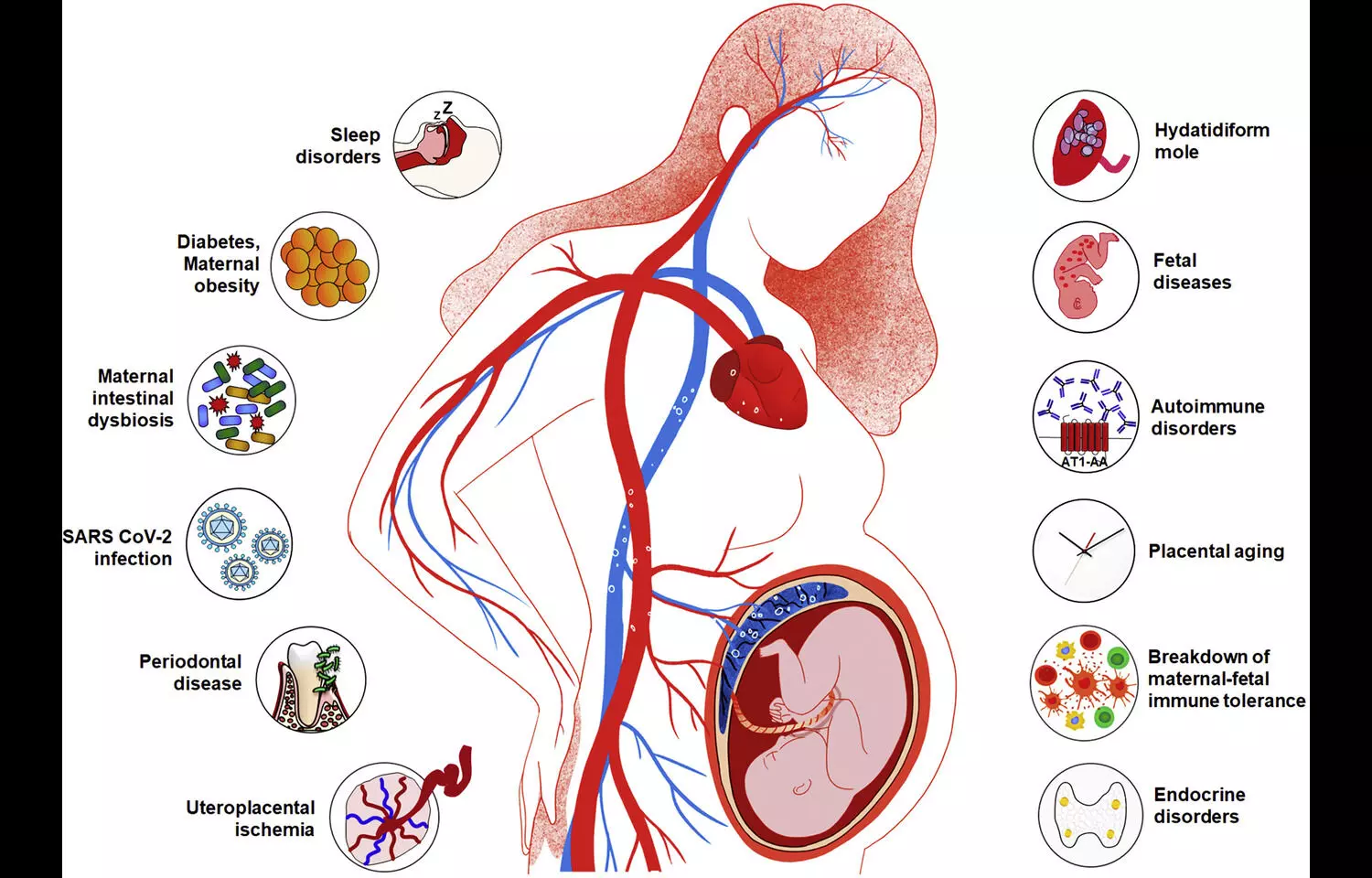Interpregnancy Weight Change Increases Risk of Preeclampsia in Second Pregnancy: Study
- byDoctor News Daily Team
- 18 September, 2025
- 0 Comments
- 0 Mins

Researchers have found in a new study that weight changes between pregnancies, along with maternal disease and first-pregnancy complications, were linked to higher risks of first-time preeclampsia in the second pregnancy—even among women with normal weight in their first pregnancy. This underscores how dynamic maternal physiology influences future pregnancy outcomes and the importance of targeted follow-up. The study, published inBJOG: An International Journal of Obstetrics and Gynaecology, analyzed data from a large registry of women who had two consecutive singleton births without preeclampsia in their first pregnancy. Researchers identified that women who experienced substantial interpregnancy weight gain (≥ 5 kg) faced significantly increased odds of developing preeclampsia in their second pregnancy compared to those with minimal weight change (adjusted odds ratio [aOR] ~1.8). Strikingly, even those with lower or stable first-pregnancy BMI (18.5–24.9 kg/m²) were at higher risk when they gained weight between pregnancies. Conversely, excessive weight loss (> 5 kg) was also associated with elevated preeclampsia risk, suggesting that maintaining weight stability may be optimal. The increased risk also correlated with the presence of maternal conditions like hypertension or diabetes, and complications from the first pregnancy—such as gestational hypertension or fetal growth restriction—further accentuated the risk in the second pregnancy. From a clinical standpoint, these findings highlight the need for proactive interpregnancy care: monitoring weight trends, optimizing management of chronic conditions, and offering counseling on healthy lifestyle interventions between pregnancies. By identifying women at increased risk early, healthcare providers can mitigate potential adverse outcomes. Future research should explore tailored strategies for interpregnancy weight management and prevention of preeclampsia across diverse populations. Meanwhile, this evidence suggests that stability—rather than significant gain or loss—in body weight between pregnancies may be a key preventive target. interpregnancy weight change, preeclampsia risk, second pregnancy, maternal BMI, obstetric outcomes, weight gain, transitional care, BJOG, chronic maternal disease, pregnancy complications, Smith, A. B., Johnson, L. M., & Patel, R.
Disclaimer: This website is designed for healthcare professionals and serves solely for informational purposes.
The content provided should not be interpreted as medical advice, diagnosis, treatment recommendations, prescriptions, or endorsements of specific medical practices. It is not a replacement for professional medical consultation or the expertise of a licensed healthcare provider.
Given the ever-evolving nature of medical science, we strive to keep our information accurate and up to date. However, we do not guarantee the completeness or accuracy of the content.
If you come across any inconsistencies, please reach out to us at
admin@doctornewsdaily.com.
We do not support or endorse medical opinions, treatments, or recommendations that contradict the advice of qualified healthcare professionals.
By using this website, you agree to our
Terms of Use,
Privacy Policy, and
Advertisement Policy.
For further details, please review our
Full Disclaimer.
Recent News
What Your Neck Size Says About Your Heart Health?...
- 04 November, 2025
EVOQUE TTVR Delivers Promising Real-World Results:...
- 04 November, 2025
Influenza Vaccination Reduces Mortality and Readmi...
- 04 November, 2025
Daily Newsletter
Get all the top stories from Blogs to keep track.


0 Comments
Post a comment
No comments yet. Be the first to comment!